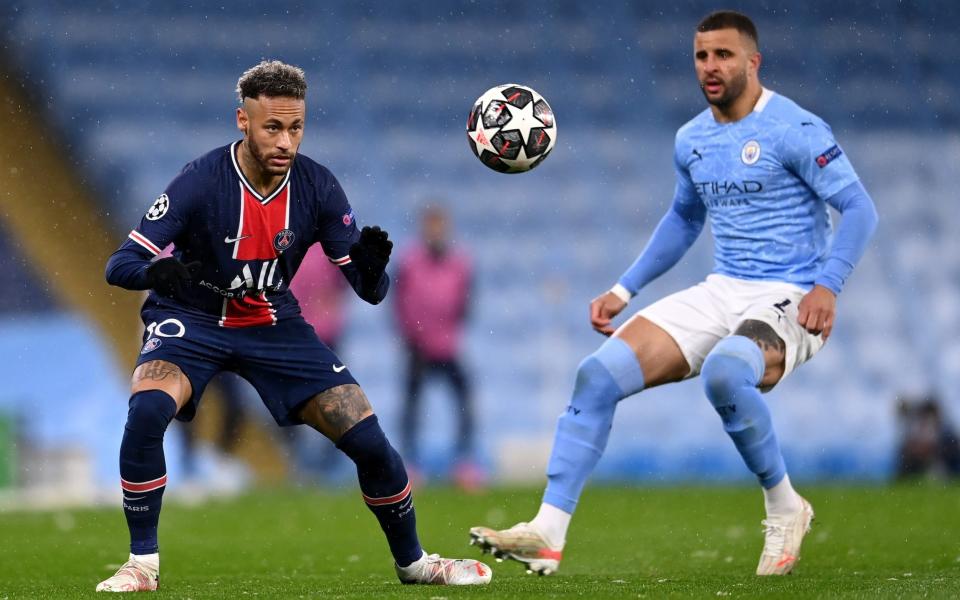How Trent Alexander-Arnold really reacted to his England snub - and why Liverpool never doubted him

There’s a school of thought that if Jurgen Klopp completes another extraordinary Anfield comeback to secure Champions League football next season, one of his first calls should be to England coach Gareth Southgate.
The romantic story goes that a bouquet of red roses ought to be dispatched to St George’s Park, the delivery note recognising Southgate’s valuable contribution to Liverpool’s late surge.
“Thanks Gareth. Dropping Trent from the England squad was a masterstroke. He’s back to his best now. We couldn’t have done it without you xx.”
Suffice to say, no such gratitude will be felt or forthcoming.
While Alexander-Arnold’s form since being dropped from international duty fits the idea that Southgate’s snub has been met with a formidable, on-field response, the prevailing view at Liverpool is the 22-year-old’s excellence is independent of, not because of, his England disappointment.
The notion that Southgate gave Alexander-Arnold the ‘kick up the backside’ he needed is undermined by the fact it was never required. The right-back’s upturn preceded being left out of March’s World Cup qualifiers, world-class performances against RB Leipzig on March 10 and Wolverhampton Wanderers on March 15 in particular pre-dating the England squad announcement. It’s an inconvenient timeline for Southgate, undermining the notion Alexander-Arnold’s primary motivation is proving the England manager, or those who backed his decision, wrong. The omission had the capacity to hamper rather than aid the renaissance by increasing the pressure and scrutiny on every performance.
The Liverpool full-back’s displays were subjected to forensic examination after Southgate suggested a failure to meet the level of previous seasons was the main factor in his decision. Every world-class pass and cross since is offered as proof Southgate erred, while any defensive mistake presented as validation of the England’s manager’s concerns.
As someone at Liverpool succinctly put it: “It’s a bit like Trent has been given a leading role in a soap opera he never auditioned for.”
As many have argued since, if everyone is being held to the same standards as Alexander-Arnold, how do we account for Eric Dier’s permanent presence in the England squad? More contentiously, what about Raheem Sterling? It would be preposterous to argue Sterling is not among England’s best 11 players. He’s arguably been the most consistent for three years. There should be no doubt of his inclusion, probably in the starting line-up for England’s opening game, but he has struggled to get into the Manchester City team lately. Judging him for England on that basis would be as bizarre as abandoning Alexander-Arnold because of a handful of poor games for his club.
To steal on on-trend expression, ‘The Big Lie’ is that Alexander-Arnold’s form had ever dipped to such an extent his European Championship place needed to become a topic of a nationwide debate. Ask Klopp to name his three Liverpool players of the season and Alexander-Arnold will be among them.
As was the case in March, those close to Alexander-Arnold - not least his manager - are bewildered by England’s treatment of the player, especially amid suggestions nothing Southgate the coach has seen recently has changed his mind about this summer. Alexander-Arnold’s teammates, many of whom expected to face him in the European Championships, are incredulous that his participation is in doubt, offering reassurance that the England manager will find it impossible to leave him at home.
Southgate has a duty to ignore what is now commonly referred to as ‘the noise’ and choose whomever he is most comfortable with. The three preferred right-back options - Kyle Walker, Reece James and Kieran Trippier - have won him over in a way Alexander-Arnold never has.

But Southgate blundered with his unconvincing explanation when citing form rather than a tactical preference for less adventurous, more defensively-minded full-backs. It sounded like he was looking for an excuse to leave out Alexander-Arnold because of long-standing concerns about how to get the best from him in an England shirt. The form guide ignored the extreme mitigating circumstances for a difficult first half of this campaign.
Liverpool chose not to publicise that Alexander-Arnold missed virtually all of pre-season last August after contracting Covid-19 - a mistake in retrospect as there would have been more public understanding for some of his early-season struggles.
Then hopes of managing his and fellow full-back Andy Robertson’s workload were scuppered when Klopp needed to rely on all the senior defenders he could pick after Virgil van Dijk and Joe Gomez’s injuries. After picking up a calf injury against Manchester City in early November, Alexander-Arnold was rushed back, and it was in that period either side of Christmas that cemented the idea he was suffering with some rare ‘fourth-season syndrome’.
For Klopp it was a matter of being patient in the most testing of times, which is why he was so intolerant of the idea there was a deeper issue at play, and especially infuriated by any suggestion his player needed such a brutal wake-up call from his national coach.
Alexander-Arnold is considered another of Liverpool’s ‘low-maintenance’ footballers, self-motivated and needing no constant reminders of his professional responsibilities.
It was telling that his first response upon being told by Southgate that he was not in the last squad was to call Klopp to ensure he was considered available for a behind-closed-doors training match the following weekend. Alexander-Arnold, rather like Mohamed Salah, is as unhappy missing practice sessions as senior games.

Over the past month, the youngster’s level has been on a par with the last three years, driving Liverpool on in what seemed a few weeks ago to be an unlikely chase for the top four. The playmaking full-back was fundamental to the victories against Manchester United and West Bromwich Albion, which pile the pressure on Chelsea and Leicester City.
Given the circumstances, Klopp might argue Alexander-Arnold’s level has risen by demonstrating leadership qualities in the absence of senior players like Van Dijk and Jordan Henderson.
Southgate may see this as a welcome selection headache which can only benefit England this summer. Equally, he may think it is one he could do without as his management of a world-class player is questioned.
The last explanation for leaving out Alexander-Arnold was, at best, contentious. Repeating it would be absurd.

 Yahoo Sport
Yahoo Sport 





































